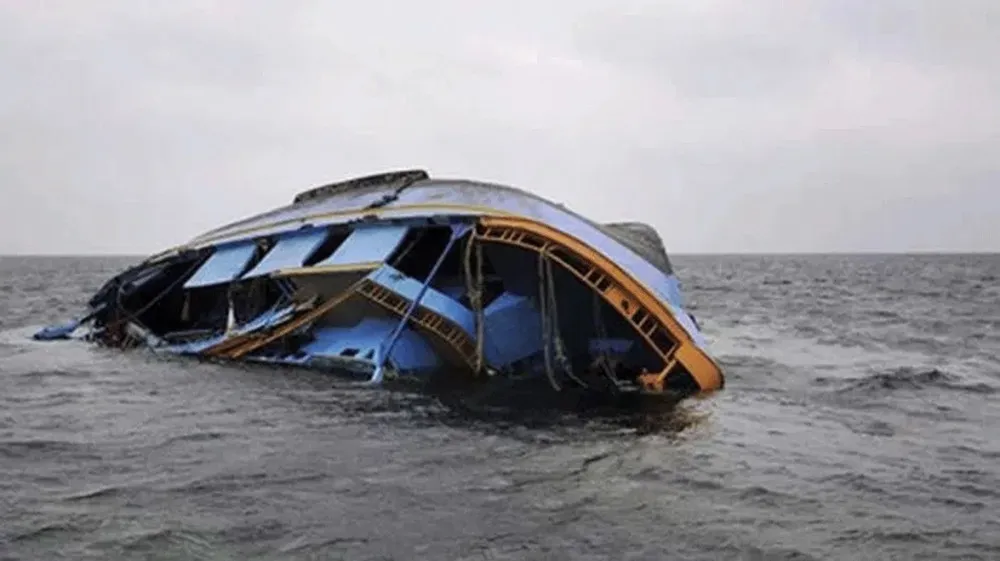With water covering about 10,000 km of Nigeria’s landscape, the country is occupied by over 3,000 km of navigable watercourses. Transportation to 28 of the 36 states is made possible through the waterways, with the river networks connecting the country to five neighboring independent states.
Boats—one of the affordable means of transportation, have become a comfortable choice for many commuters in Nigeria, as several coastal communities were surrounded by rivers, sea and other water bodies. But beyond the luxury, the country is retrieving countless lifeless bodies, with others gone missing due to constant incidents of water accidents.
Within a decade, Nigeria recorded over 3,000 boat accidents, this was revealed by data released by the Marine Crafts Builders Association of Nigeria (MCBAN).
In 2024, the country buried nothing less than 452 bodies who met their end while traveling on water. Significant fatalities were recorded in the last two quarters of the year, with Bayelsa, Kwara, Kogi, and Niger state experiencing separate incidents between July and December.
Reports alleged that the majority of the accidents were resulted from poor measures as a result of poor proactive efforts to ensure safe water transportation. The crew members and boat operators were said to be overlooking legal frameworks that secure safe navigation on waterways.
2025: Fatalities Keep Surging
Despite vital casualties being experienced last year, the trend continued to be on the rise in 2025, as the governments took little to no action to address the menace.
In May, nothing less than 27 lives were lost to a devastating boat accident in Gbajibo community in Kwara state. The accident was reported to have been caused by overloading, regulatory lapses and adverse weather.
In August, four people were confirmed dead while five went missing, following another tragic incident when a boat transporting about 50 passengers capsized in Goronyo local government of Sokoto state. The National Emergency Management Agency (NEMA) made it known that 25 people were presumed dead, as their bodies were unaccounted for. Reports showed that the Goronyo incident was the third time Sokoto will be hit by boat mishap in 2025 alone.
Meanwhile, another huge fatalities was recorded in September, at Niger state, one of the largest coastal communities in Nigeria. The accident occurred when a boat carrying over 100 people hit a submerged tree stump near Gausawa community in Borgu local government area. While at least 60 people died from the incident, dozens of victims survived after holistic efforts from a rescue team.
Several actors have raised concerns, highlighting the needs to tackle the growing problem.
According to them, the frequent incidents of boat accidents in Nigeria have been linked to lax safety enforcement, overcrowding, and usage of poorly maintained vessels. The problem persists despite directives from the president’s office, plus the establishment of a Special Committee saddled with the responsibility of preventing the occurrence of boat mishaps in the country.
Recurrence of these boat tragedies have exposed lack of oversight from NIWA, with systemic weaknesses in Nigeria’s water transportation safety protocols and enforcement.
New Action to End the Menace
As part of the measures to fight boat accidents on Nigeria waterways, the National Inland Waterways Authority (NIWA), has ordered loading activities at unauthorized points as illegal.
This was disclosed by Bola Oyebamiji, the Managing Director of NIWA, during a press briefing at Abuja, on Tuesday, 9th September.
While prohibiting boat operators from unregulated operations, the body mandated enforcement of safety measures among the water road users.
“It is mandatory for all commercial boat operators to provide and enforce the use of lifejackets on board at all times. Every commercial passenger vessel must also clearly display its boat name letters and load line.”
The NIWA chief further ordered the removal of all unlicensed boats and watercraft from the waterways, adding that unlicensed drivers and operators are strictly prohibited from ferrying passengers or cargo.

